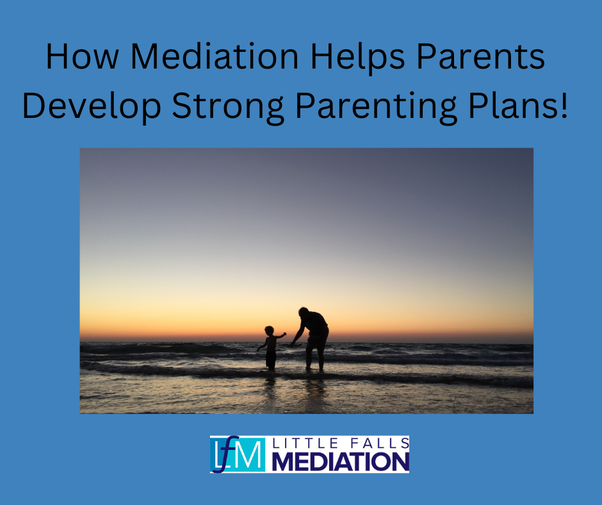|
Co-parenting can be challenging, especially when parents have differing opinions and conflicting priorities. However, developing a well-thought-out parenting plan is crucial for the well-being of the children involved. Mediation provides a constructive and effective approach for parents to collaborate and create a parenting plan that serves the best interests of their children. In this blog post, we will explore how mediation can help parents navigate the complexities of co-parenting and develop a comprehensive parenting plan.
Facilitating Communication and Cooperation. Mediation creates a safe and neutral environment where parents can openly communicate and work together. A trained mediator facilitates the discussion, ensuring that both parents have an equal opportunity to express their thoughts, concerns, and desires. By promoting respectful and constructive dialogue, mediation helps parents develop effective communication skills that are essential for successful co-parenting. It encourages cooperation and fosters a spirit of compromise, enabling parents to focus on the needs of their children rather than their personal conflicts. Considering the Best Interests of the Children. One of the primary goals of mediation is to prioritize the best interests of the children involved. Mediators are trained to guide parents in considering various factors, such as the child's age, developmental needs, and relationship with each parent. Through mediation, parents can work collaboratively to develop a parenting plan that takes into account the unique needs and circumstances of their children. This approach promotes child-centered decision-making, which is vital for their emotional well-being and stability. Customizing Parenting Arrangements. Every family is different, and what works for one may not work for another. Mediation recognizes the uniqueness of each family and allows parents to create a customized parenting plan that suits their specific situation. Rather than adhering to a one-size-fits-all approach, mediation empowers parents to consider their children's schedules, school activities, extracurricular commitments, and any other relevant factors when designing a parenting plan. This flexibility helps create arrangements that are realistic, practical, and sustainable, ensuring the long-term success of co-parenting. Reducing Conflict and Promoting Long-Term Cooperation. Conflict between co-parents can have detrimental effects on children's well-being. Mediation aims to reduce conflict by fostering a cooperative atmosphere and encouraging parents to find mutually acceptable solutions. By providing a structured process for resolving disputes, mediation helps parents develop problem-solving skills and find common ground. When parents actively participate in creating a parenting plan, they are more likely to adhere to it and maintain a positive co-parenting relationship in the long run. Enhancing Parenting Skills and Relationships. Mediation not only helps parents navigate the logistics of co-parenting but also provides an opportunity for personal growth. Through the mediation process, parents can develop essential parenting skills, such as effective communication, empathy, and flexibility. These skills not only benefit the co-parenting relationship but also contribute to individual growth as parents. Mediation can strengthen the bond between parents as they learn to work together and collaborate on important decisions regarding their children's upbringing.
0 Comments
Leave a Reply. |
AuthorEllice Halpern, J.D., is a Virginia Supreme Court certified general and family mediator. Archives
June 2024
Categories |
Copyright © 2015 www.littlefallsmediation.com


 RSS Feed
RSS Feed